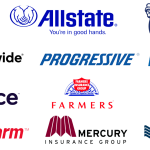National Taxpayer Advocate Nina Olson attracted attention — well under the radar — this
past week as she warned of an emerging “two-class tax system” in which the
lower middle class will face harsh IRS tax penalties while wealthy individuals
and corporations will be treated much differently.
could leave older Americans with limited computer skills at a particular disadvantage.
They could be charged user fees to talk with the IRS the old-fashioned way.
families who file erroneous tax returns. The massive budget bill passed by
Congress and signed into law by President Obama in December imposes new IRS
penalties that apply to low-income workers but not necessarily to those who can
afford to hire high-priced tax lawyers to battle the feds.
Credit (EITC) for two years if they have improperly claimed benefits in the
past labeled as “reckless or intentional disregard” of the rules. Now this
prohibition also applies to the Child Tax Credit and the American Opportunity
Tax Credit for college tuition costs.
credits is banned from receiving that subsidy for 10 years. The cost to the
federal budget is infinitesimal but the cost for a family of limited means can
be significant: Losing the child credit would cost up to $1,000 per child
annually.
Olson reported in 2011 that of the 5,500 families banned from taking the EITC, more than 2,100
were barred because they did not respond to written IRS requests that they
substantiate their claims.
you move is sufficient evidence of intentional disregard of the law,” wrote
Howard Gleckman of the Tax Policy Center.
subject to a maximum penalty of $50,000. The IRS can revoke
an organization’s tax-exempt status, but only if it fails to file a return for
three consecutive years.
benefit from lower tax rates may end up paying back taxes and perhaps
interest—after years of expensive litigation. But they are at no risk of losing
future tax benefits.
(corporations) and hedge funds pay armies of tax advisers to push the limits of
the law as far as possible without stepping over the line. Low-income
households can’t. They rely on often-incompetent or corrupt preparers to guide
them through complex rules they do not understand,” Gleckman wrote.
5-year modernization plan by the IRS will move taxpayers, particularly those of
modest economic means, away from IRS help desks and one-on-one phone calls and into
the arms of paid tax preparers — if they can afford a tax preparer at all.
system:”
and can navigate the self-help options well enough to protect their rights will
be able to do so. Those who have the ability to pay a third party to navigate
the IRS and protect their rights will do so,” Olson wrote.
 |
| Olson |
“But for those who have neither the expertise, the time, nor the resources to
navigate these options — they will be up a creek. They will make mistakes with
self-help; they will agree to ‘assessments’ and ‘adjustments’ they never
should; and they will forfeit significant due process protections like the
right to go to the United States Tax Court or have a collection due process
hearing — all because they can’t talk with an IRS employee about their
situation or because they can’t afford to pay someone to help them.”
about. The second-biggest problem for taxpayers, according to the advocate, is
that the agency might rely on user fees to make up some of its budget
shortfall. If some taxpayers can afford those fees and others can’t, that could
undercut the IRS’s ability to run a fair and just tax system, Olson’s report
said.
last month that the National Rifle Association has repeatedly filed misleading
tax returns. For six years it failed to report that its political action
committee (PAC) was an associated organization. For seven years, it simply
ignored a tax form question about whether it engaged in lobbying. From
2008-2013 it failed to report the amount it spent on lobbying. The trade group
blamed these years of incorrect filings on a “clerical error.”
NRA)? Who is to say what is in the mind of someone who files an improper tax
return? But it seems more clear-cut for a huge organization that relies on
teams of accountants and lawyers than a single mom who fails to comply with
complicated rules governing whether she, or her children’s father, should claim
the EITC or the Child Tax Credit.”









Drunk’ Bhagwant Mann forced to leave bhog